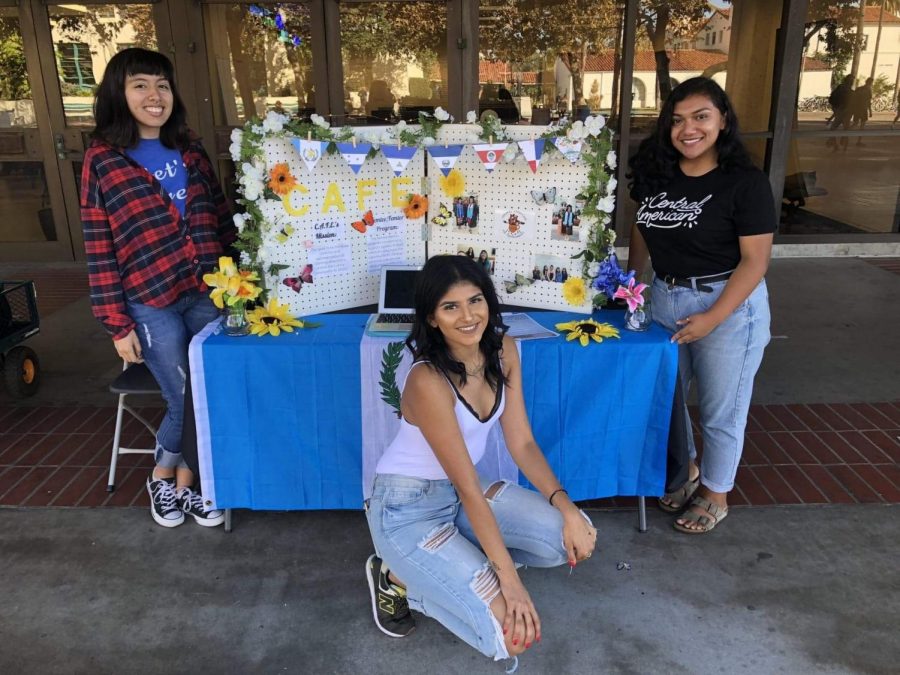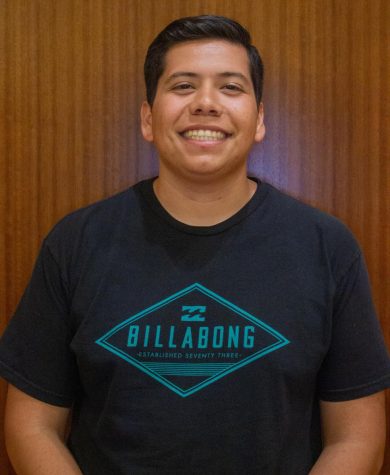When social science senior Natalie Martinez arrived at San Diego State, she looked for a place where she could connect with people like her.
Martinez, who is of Guatemalan descent, said she got involved with different Latinx organizations but was struggling to find one that felt right for her.
“I was previously involved with other Latinx organizations and they’re all mostly catered toward Mexican people,” Martinez said.
The lack of a community for Martinez to connect with other Central American students, and her awareness of similar spaces like the one she had in mind were starting up at other college campuses, helped inspire her to start one at SDSU.
Central Americans For Empowerment, a national organization that started its SDSU chapter in spring 2018, meets bi-weekly and aims to shed light on different topics that are relevant within the Central American community at SDSU.
Martinez said C.A.F.E. helped create a sense of community for other Central American students like her.
“There aren’t a lot of spaces for people to learn about Central America,” Martinez said. “Essentially what C.A.F.E. tries to do is build a community for Central Americans here at San Diego State.”
Interdisciplinary studies senior Amaris Tenorio, who is of both El Salvadoran and Mexican descent, is one of the founding members for C.A.F.E at SDSU, along with Martinez.
Tenorio said Martinez’s idea to start C.A.F.E. at SDSU was inspired by the belief it would give back to the Central American community on campus.
“Natalie is the one who came up with the idea for starting the first Central American organization,” Tenorio said. “I thought it was a really great idea and the emphasis was that we wanted it to give back to the Central American community that is often invisible and marginalized.”
Hospitality and tourism management senior Angela Palencia said she first heard about C.A.F.E. while she was on Twitter, after she saw a retweet that C.A.F.E. had just started a new chapter at SDSU.
Now the organization’s director of outreach, Palencia works to reach out to potential members who may be interested in joining C.A.F.E.
Palencia, who is of Guatemalan descent, said finding students who share similar cultural backgrounds has created a better atmosphere for her on campus by helping her connect with similar students at SDSU.
“We talk about phrases that our families use and we know exactly what we’re talking about,” Palencia said.
Palencia said she felt the timing of joining C.A.F.E. was right as it was around the period of time where a migrant caravan from various Central American countries reached the San Ysidro port of entry seeking asylum.
Issues that affect the Central American community such as migration are ones Palencia said she hopes C.A.F.E. can work to educate people on.
“Issues like that are really hot topics,” she said. “There are so many smaller issues that are being caused by these overarching problems.”
C.A.F.E. at SDSU has only had around 10 members since the local chapter was created. Despite the low number of members within the group, Tenorio said she believes the group can still have an impact on the students they do connect with.
“Even though we have had small events and they haven’t been as big as they want them to be, I still think it’s better to impact a small group of students instead of none,” she said.
Martinez shares the same sentiment on C.A.F.E.’s presence at SDSU. Martinez said having people at SDSU know about her organization reassures her of its importance.
“Although we are small and don’t get a lot of people, I know our presence here is still important even if people just know about us I feel like that is a reassurance,” Martinez said.
A previous version of this story incorrectly described Natalie Martinez’s ethnic identity. The Daily Aztec regrets this error.









